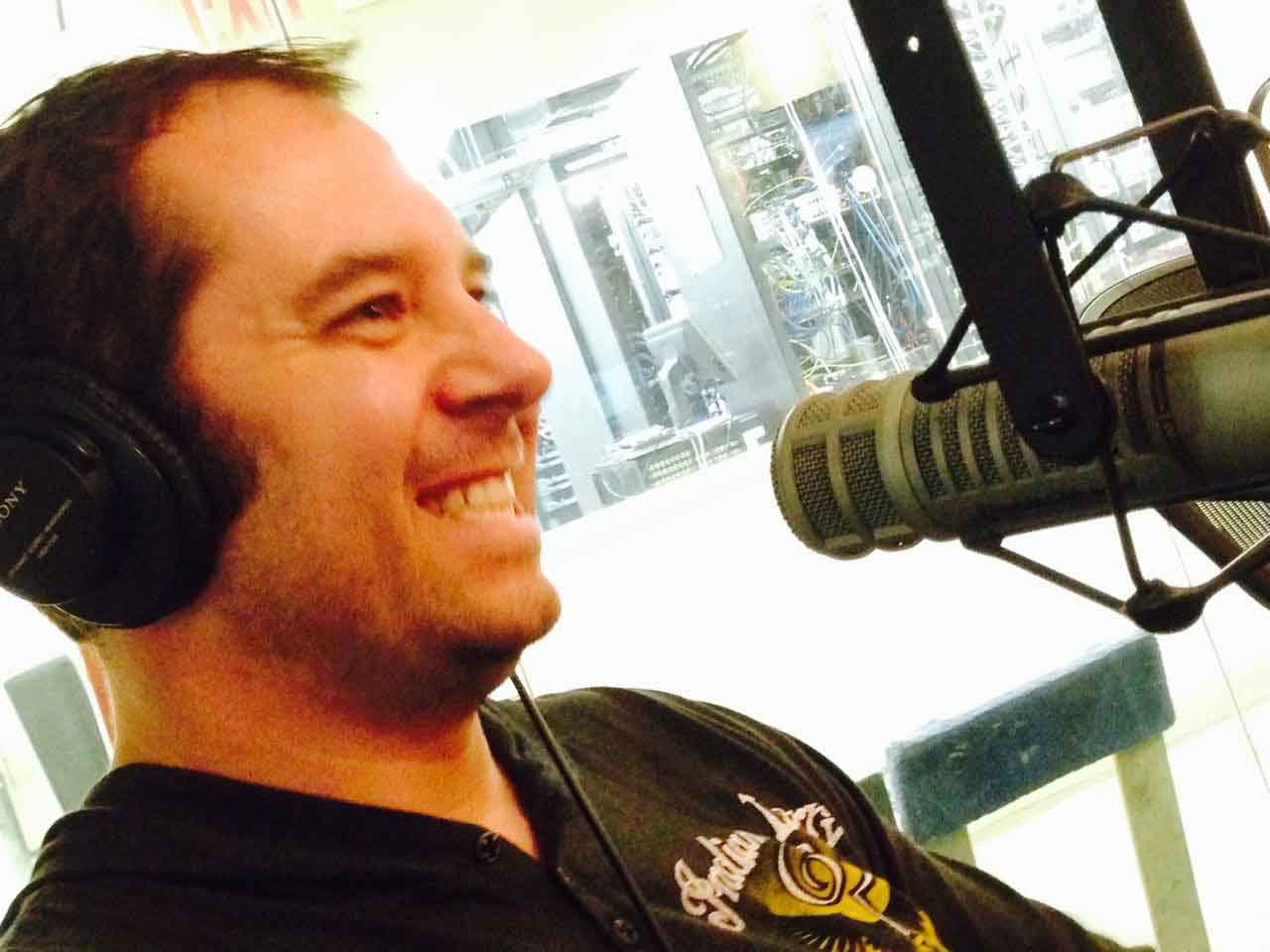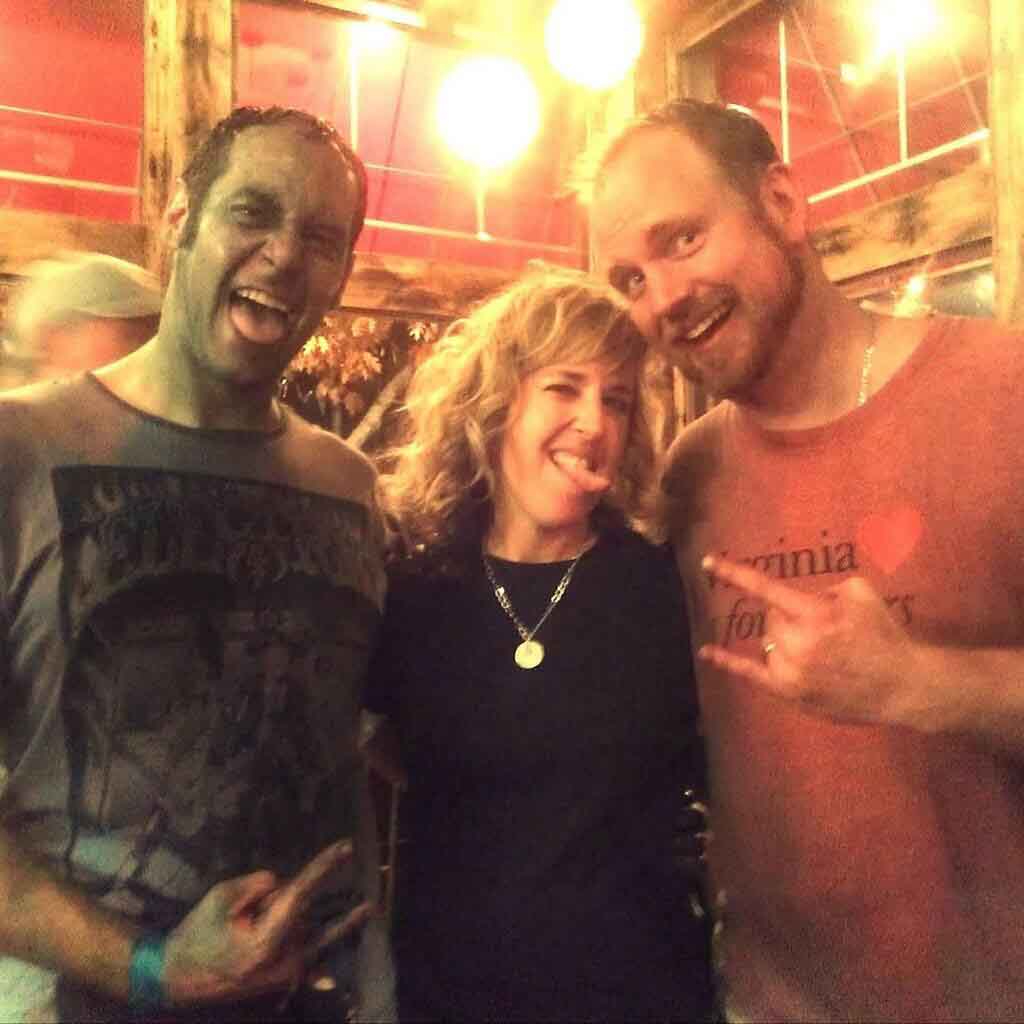For some time we have delved into academia and its treatment of heavy metal. Today however we take another course, which is to look at the technology of heavy metal and its implications for both society and technology.
Aiding us in this quest is Dr. Brian Kirkmeyer, who teaches “Metal on Metal: Engineering and Globalization in Heavy Metal Music” at Miami University in Oxford, OH. He was good enough to gift us with some of this time explaining the class and his approach to the study of heavy metal.
You’re teaching an engineering class on the advances in technologies and how they have affected heavy metal music. Can you tell us what types of technologies these are? What are the “defining characteristics” of heavy metal that these have impacted?
I focus on the foundational characteristics of loudness and distortion and then expand from there. This means a lot of electronics, from signal generation via pickups and strings to amplification systems to signal modification via pedals, and mechanical design, including materials selection and manufacturing processes. I integrate these and more engineering aspects with the musical and cultural developments that have happened over the past 50 years.
How does global culture factor into this? Are you speaking of communications technologies here? For global culture, it is on a number of different levels.
“Global” for me and my university is really “non-local,” so we mean both around the world and just outside of immediate familiar surroundings. Heavy metal culture is foreign to a lot of my students, so the class is global for those students. We discuss international perceptions and usage of metal as a vehicle for socio-political commentary. We discuss the demographic aspects of metal as compared to that of larger popular musical culture. We discuss tape trading as the precursor to file sharing, and how there is a worldwide impact that affects band popularity and new band formation. It literally hits on about everything I can squeeze into the class about exploring beyond students’ comfort zones and knowledge bases.
What types of heavy metal do you study in the course?
I start with metal’s pre-history (Wagner, the blues, jazz, surf) and go forward from there. I cover about everything…if it’s in Ian Christe’s Sound of the Beast and Sam Dunn’s work, I address it. I spend the most time on the development of the various subgenres, and how certain technologies have manifested at certain points in time, and try to wrap up with more current trends and expected musical pathways. By and large, students don’t know their history of music in general (let alone metal), and so I try to build that history toward what they DO know.
I understand you’re a heavy metal listener, having recently attended a GWAR live show. What types of metal do you listen to? When did you become a metalhead?
I got into metal at age 8 due to Def Leppard’s “On Through the Night,” but didn’t really look the part until I was in eighth grade. I fit the young white male demographic, but I’ve never been blue-collar despite growing up in a union town and becoming an engineer. I mostly like NWOBHM, 70s metal, Thrash, Progressive and various Extreme subgenres, and will listen to about everything. Glam metal is even metal to me (David Lee Roth/Poison was my first show), and it’s a lot of fun. I’ve always wanted to hear more styles and bands, and expose people to more of what I like by introducing them to bands that I think fit their musical tastes. Iron Maiden is my all-time favorite band, and right now I’m into Kyng and Skeletonwitch pretty strongly.
What is, in your view, the historical importance of heavy metal, and does it signal any changes in the underlying course of human history, technological or otherwise?
Heavy metal’s technological importance is huge. If not for people wanting to make music louder, angrier, or more powerful, we would all still be playing six-string guitars and four-string basses and having relatively small amps. Because of metal, there is a ready market for 8-string guitars that engineers have had to figure out how to design and manufacture, along with all of the supported technology that goes with it (larger pickups, more robust bridges, wider necks, etc.). I also think that heavy metal has been a (not necessarily “the”) primary social voice for rebellion, and a more recent vehicle for the drive for social equality in many other countries (see Heavy Metal Islam by Mark LeVine). I’d like to think that the more that people find avenues to release stress and express their views through music, the less we will hear about people shooting up schools and movie theaters. So far, that hasn’t been the case, and so changing the course of human history is still a work in progress.
What has response been like from your students? Are they metalheads?
The students seem to love the class. I’d say that at the start of a given semester, about 20% of the students are metalheads and many of the rest of them take the class because it either sounds interesting, fulfills a math liberal education requirement, or think I’d be fun as an instructor. By the end of the semester, I’ve usually converted (at some level) about half of the non-metalheads into quasi-metalheads or better, and most of the rest have a greater appreciation for metal and its culture. The most satisfying thing, though, is that the class helps break down barriers and stereotypes that students have, and students really start thinking differently about the world around them and their interactions with it. Self-reflection is a HUGE part of the class.
Can you tell us a little bit more about yourself? How did you get involved in academia? What motivated you to be involved with engineering and computing?
Full disclosure…engineering wasn’t my first goal. I wanted to be a stand-up comic (Eddie Murphy was an idol), then an NFL quarterback, then a rock star, and THEN an engineer. I’ve always been in the gifted programs in school, but I was also always the class clown/athlete/music expert too, so I was never part of any particular cliques in school. I started college (Purdue U) with the intent of getting a job as an engineer, despite not really knowing what that meant. I liked to learn new stuff, whatever it was, and I was largely the only engineer in college who cared about liberal education. I decided to get my doctorate in engineering (U of Pennsylvania) because my BS degree job was pretty blah.
My first post-PhD job was managing a lab and working an electron microscope. Never put the class clown/lead singer/QB personality in a dark closed room by themselves… :) My mother-in-law got me to consider academia, as she pointed me to a job (my current one) where my personality was going to be core, and my technical chops were nice to have along for the ride.
I love what I do, because I recruit, advise, teach, help, and everything else that my “social me” needs to do. I’ve earned an endowment to my position because I throw myself and my passion into everything I do here. I’ve got the respect here that allows me to not only propose a heavy metal-and-engineering class, but also get it approved and part of the liberal education plan and have it accepted as an honors course. Now I get to include metal as a regular part of my job, and it’s GREAT!
2 Comments



